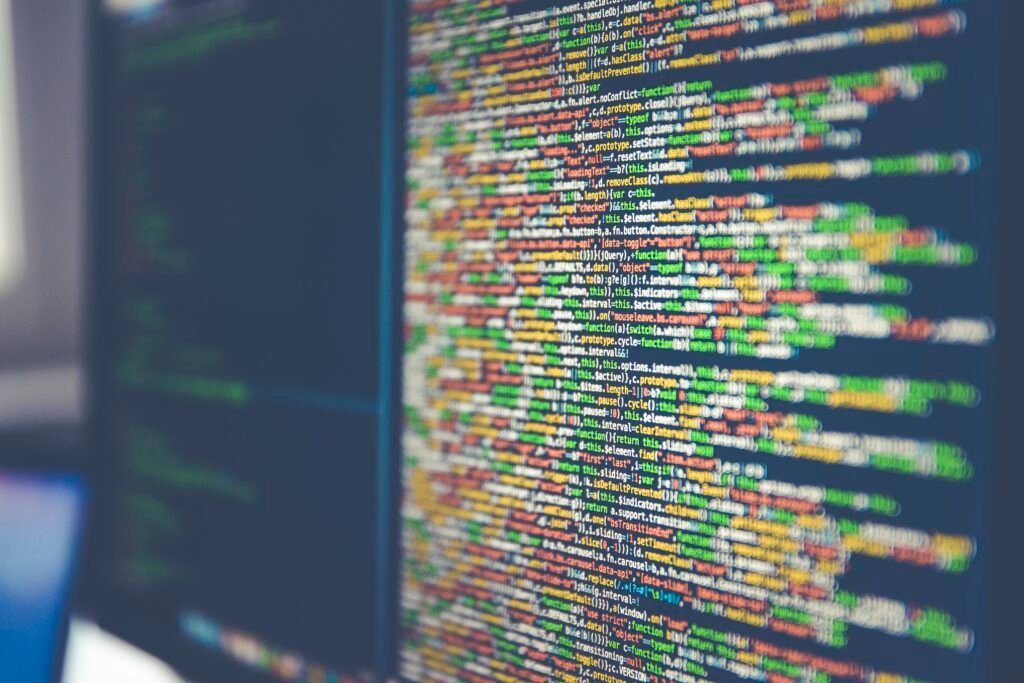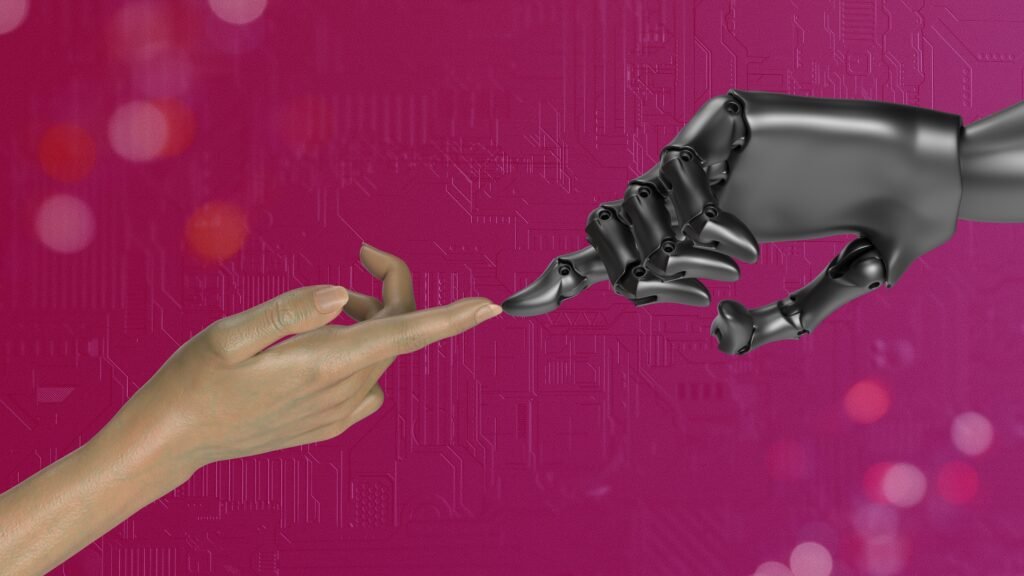In an increasingly interconnected world, it is undeniable that artificial intelligence (AI) has become a pervasive force in our daily lives. Defined as computer systems that can perform tasks that normally require human intelligence, AI has made significant technological advancements through key technologies such as machine learning, deep learning, and natural language processing. From navigation and facial recognition to autocorrect and recommendation algorithms, AI is seamlessly integrated into our everyday experiences. Whether it’s enhancing our photography skills, improving our travel experiences, or personalizing recommendations, AI has become an indispensable tool in various applications and industries. With its ability to automate customer service, suggest content on social media, and facilitate online payments, AI continues to elevate convenience and efficiency in our lives.
AI in Maps and Navigation
Assisting with directions
Artificial intelligence has revolutionized the way we navigate through maps. With AI, maps and navigation systems can provide accurate and updated directions to help you reach your desired destination. AI algorithms consider factors such as real-time traffic data, road conditions, and even weather forecasts to recommend the most efficient routes. Whether you’re driving, walking, or using public transportation, AI-powered maps can help you navigate with ease.
Real-time traffic updates
Gone are the days when we had to rely on outdated traffic reports or personal experience to avoid congested roads. AI enables real-time traffic updates, providing users with information on traffic jams, accidents, and the best alternative routes. This ensures that you can anticipate and avoid traffic bottlenecks, saving both time and frustration. AI analyzes vast amounts of data from various sources, including GPS signals, traffic cameras, and user reports, to keep you informed about the current traffic conditions.
Optimizing routes
AI also plays a crucial role in optimizing routes, especially in complex and congested urban areas. By studying historical data, AI algorithms can predict traffic patterns and optimize routes to minimize travel time. This saves you from getting stuck in traffic and helps you reach your destination faster and more efficiently. AI-powered maps and navigation systems constantly learn and improve based on user feedback and data, ensuring that you receive the best possible routes and directions.
AI in Facial Detection and Recognition
Unlocking smartphones
Have you ever used facial recognition to unlock your smartphone? That’s one of the many ways AI is utilized in facial detection and recognition. AI algorithms analyze unique features of your face, such as the distance between your eyes and the shape of your nose, to create a digital representation called a template. When you try to unlock your smartphone, AI compares the template generated from your face with the stored templates to determine if it’s a match, granting you access.
Enhancing security systems
AI has also been instrumental in enhancing security systems through facial detection and recognition. In public spaces, AI-powered cameras can detect and identify individuals by comparing their faces against databases of known individuals. This technology has been adopted by law enforcement agencies to enhance public safety and aid in locating suspects. Additionally, AI can analyze facial expressions and detect anomalies, helping to identify potential threats or suspicious behavior.
Identifying individuals in photos
Thanks to AI, identifying individuals in photos has become easier and more efficient. AI algorithms can analyze facial features and compare them against a database of known individuals, allowing you to tag and identify people in your photos with just a few clicks. This not only saves time but also helps you organize your photo collection more effectively. AI-powered facial recognition technology has become an invaluable tool in various industries, including law enforcement, entertainment, and social media.
AI in Text Editors and Autocorrect

Detecting and correcting spelling errors
Say goodbye to embarrassing spelling mistakes with AI-powered text editors and autocorrect. These tools use AI algorithms to detect and correct spelling errors in real-time as you type. Machine learning models analyze vast amounts of text data to learn and recognize common spelling mistakes, suggesting the correct spelling automatically. This not only saves you time but also ensures that your written content is accurate and professional.
Suggesting alternative word choices
Sometimes, finding the right words can be challenging. Thankfully, AI is here to help. Text editors equipped with AI algorithms can suggest alternative word choices that can enhance the clarity and impact of your writing. By analyzing contextual cues and patterns in language, AI algorithms can generate a list of suggested words or phrases that align with your intended meaning. This helps you find the most suitable words to convey your message effectively.
Predicting next words in a sentence
Keep up the flow of your writing with AI-powered predictive text. AI algorithms can predict the next words in a sentence based on the context and your writing patterns. As you type, the text editor suggests the most likely next words, reducing typing effort and increasing writing speed. This feature is particularly helpful when composing emails, messages, or any form of written communication. AI-powered text editors not only save you time but also enhance the overall writing experience.
AI in Search and Recommendation Algorithms
Improving search engine results
AI is behind the scenes of every web search you perform. Search engines use AI algorithms to analyze and understand the content of web pages, ensuring that the most relevant and accurate results are displayed. By considering factors such as keyword relevance, user intent, and search history, AI-powered search engines deliver personalized and targeted search results. This allows you to find the information you need quickly and efficiently.
Personalizing content recommendations
Ever wonder how streaming platforms recommend shows or music based on your preferences? That’s the power of AI in recommendation algorithms. AI analyzes your past viewing or listening habits, as well as those of similar users, to predict your preferences and suggest content tailored to your tastes. Whether it’s movies, music, or books, AI-powered recommendation systems ensure that you discover new content that aligns with your interests, leading to a more personalized and engaging experience.
Enhancing online shopping experiences
AI has transformed the way we shop online. Recommendation algorithms powered by AI analyze your browsing and purchase history to suggest products that align with your preferences. This not only saves you time searching for the perfect item but also helps you discover new products or brands that you may not have considered before. Additionally, AI can assist in filtering search results based on criteria such as price range, brand preferences, or product specifications, providing a more streamlined and personalized shopping experience.
AI in Chatbots and Digital Assistants

Providing instant customer support
Gone are the days when you had to wait on hold to speak with a customer service representative. AI-powered chatbots now provide instant customer support, 24/7. These virtual assistants can understand and respond to customer queries, providing accurate and helpful information in real-time. By utilizing natural language processing, AI-powered chatbots can simulate human conversation, making the overall customer support experience more efficient and convenient.
Answering frequently asked questions
AI-powered chatbots excel at answering frequently asked questions. By analyzing vast databases of common queries and corresponding responses, chatbots can quickly provide relevant and accurate information to users. This not only saves time for both the user and the company but also ensures consistent and reliable customer support. AI-powered chatbots are increasingly being integrated into websites, social media platforms, and messaging apps to provide instant assistance to users.
Performing tasks through voice commands
Digital assistants, such as Siri, Alexa, or Google Assistant, have become an integral part of our daily lives. These AI-powered assistants can perform various tasks through voice commands, making our lives more convenient. From setting reminders and sending messages to playing music or controlling smart home devices, AI-powered digital assistants can understand and execute your requests accurately. This hands-free and voice-activated technology has transformed the way we interact with our devices.
AI in Social Media
Monitoring and filtering content
With the ever-increasing amount of content shared on social media platforms, AI plays a vital role in monitoring and filtering content. AI algorithms can analyze text, images, and videos to detect and filter out inappropriate or harmful content, such as hate speech, fake news, or graphic imagery. This helps create a safer and more enjoyable social media experience for users, while also allowing platforms to enforce community guidelines effectively.
Facial recognition in photo tagging
Tagging friends in photos has become effortless, thanks to AI-powered facial recognition technology. AI algorithms can analyze facial features in photos and suggest tags for individuals who appear in the images. This saves time and reduces the manual effort required to tag friends or family members in your photos. Facial recognition technology powered by AI has become a common feature on social media platforms and has revolutionized the way we share and organize our photo collections.
Targeted advertising based on user preferences
AI algorithms analyze user data, including browsing history, interests, and demographics, to deliver targeted advertising on social media platforms. By understanding your preferences, AI-powered systems can recommend products or services that are more likely to be of interest to you. This not only benefits advertisers by reaching their target audience more effectively but also enhances the user experience by delivering relevant ads that align with their interests.
AI in E-Payments

Fraud detection and prevention
AI has become an essential component in detecting and preventing fraud in e-payments. By analyzing patterns of transactions and user behavior, AI algorithms can identify anomalies and suspicious activities that may indicate fraudulent transactions. This helps protect both businesses and consumers from financial losses and unauthorized access. AI-powered fraud detection systems continuously learn and adapt to new fraud patterns, ensuring the highest level of security in e-payment transactions.
Automating payment processes
AI has streamlined the payment process by automating various aspects of e-payments. From scanning and reading payment details on invoices to categorizing and processing transactions, AI algorithms can perform these tasks accurately and efficiently. This reduces manual effort, minimizes errors, and speeds up the payment process. AI-powered e-payment systems also enable seamless integration with other platforms, such as online marketplaces or accounting software, simplifying financial management for businesses and individuals.
Enabling seamless online transactions
Have you ever made a purchase with just a single click? That’s possible thanks to AI in e-payments. AI-powered systems can securely store your payment information and streamline the checkout process. By analyzing your purchase history and preferences, AI algorithms can predict and suggest payment methods, making online transactions faster and more convenient. AI in e-payments has transformed the way we shop online, eliminating the need for repetitive form filling and enhancing the overall user experience.
AI in Traveling
Assisting with trip planning and itineraries
Planning a trip can be overwhelming, but AI can simplify the process. AI-powered travel platforms can analyze your preferences, budget, and travel history to suggest personalized itineraries and attractions. These platforms can also provide information on flights, accommodations, and transportation options, allowing you to make informed decisions. Whether you’re planning a weekend getaway or a long vacation, AI can assist you in creating a customized and memorable travel experience.
Providing personalized travel recommendations
AI is your ultimate travel companion when it comes to exploring new destinations. By analyzing vast amounts of data, including user reviews, travel blogs, and social media posts, AI-powered travel platforms can recommend attractions, restaurants, and activities that align with your preferences. This ensures that you make the most out of your travel experience and discover hidden gems that you might have otherwise missed. AI has transformed the way we discover and explore new places.
Automating airport check-in processes
No more long queues at airport check-in counters. AI is automating the check-in process, making it faster and more convenient for travelers. AI-powered kiosks can scan your boarding pass or passport and provide you with a printed boarding pass, saving time and reducing human error. Additionally, facial recognition technology is being used to verify the identity of passengers, further enhancing the security and efficiency of airport check-in processes. AI has made air travel more seamless and hassle-free.
AI in Photography
Enhancing image quality and clarity
AI has revolutionized the field of photography by enhancing image quality and clarity. AI algorithms can analyze and process images to reduce noise, sharpen details, and improve overall image quality. This is particularly useful in low-light conditions or when capturing fast-moving subjects. AI-powered photography software or cameras can automatically enhance images, ensuring that you capture those perfect moments with stunning clarity and detail.
Automatically adjusting camera settings
Have you ever struggled to find the right camera settings for a particular scene? AI-powered cameras can take care of that for you. By analyzing the scene and detecting various elements, such as lighting conditions or subject movement, AI algorithms can automatically adjust camera settings to optimize image capture. This ensures that you get the best possible results without the need for manual adjustments. Whether you’re a professional photographer or a casual enthusiast, AI in photography can help you capture stunning images effortlessly.
Detecting and removing unwanted objects from photos
Say goodbye to photobombs and unwanted distractions in your photos. AI-powered photography software can analyze images and detect objects that may be distracting or unwanted. By utilizing AI algorithms, you can easily remove or replace these objects, creating cleaner and more visually appealing images. Whether it’s removing a random passerby from a cityscape or erasing an unwanted reflection, AI in photography allows you to enhance and manipulate your photos effortlessly.
AI in Personalized Recommendations
Recommendations for movies, music, and books
AI-powered recommendation systems have transformed the way we discover and enjoy movies, music, and books. By analyzing our past preferences, AI algorithms can suggest movies, albums, or books that align with our tastes. These recommendations are based on factors such as genre, artist similarities, or user reviews. AI-powered recommendation systems continually learn and adapt, ensuring that the suggestions remain relevant and enjoyable. Whether you’re looking for your next favorite movie, song, or novel, AI can assist you in finding something tailored to your preferences.
Tailored news and article suggestions
Stay informed with AI-powered news and article recommendations. By analyzing your reading habits, AI algorithms can suggest news articles or blog posts that align with your interests. These recommendations are based on factors such as topic relevance, source credibility, and your browsing history. This helps you stay up-to-date on the latest news, trends, and topics that matter to you. AI in news and article recommendations ensures that you’re always informed and engaged.
Customized product recommendations
Personalized product recommendations have become an integral part of the online shopping experience. AI-powered recommendation systems analyze your browsing and purchase history to suggest products that align with your preferences and needs. Whether it’s fashion, electronics, or home decor, these recommendations are tailored to your individual tastes and preferences. AI algorithms take into account factors such as product ratings, customer reviews, and even your social media activity to deliver highly targeted and relevant recommendations. AI in product recommendations simplifies the decision-making process and enhances the overall online shopping experience.
Artificial intelligence has become an indispensable part of our lives, transforming the way we navigate, communicate, shop, and conduct various tasks. From maps and navigation to personalized recommendations, AI has made our lives more convenient, efficient, and enjoyable. As technology continues to advance, we can expect AI to play an even more significant role in various aspects of our daily lives, enhancing our experiences and improving our overall quality of life. Embrace the power of AI and discover a world of endless possibilities.






